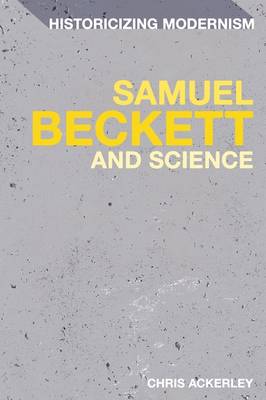Historicizing Modernism
1 total work
From pre-Socratics to the literature of his own days, Samuel Beckett spent his early years absorbing all he could of Western European literature, art, philosophy and science. Yet his interest in scientific disciplines and methodologies, essential to his writing, has been largely neglected. Samuel Beckett and Science returns to the empirical roots of his thought.
Ackerley works closely with Beckett's 1930s notebooks, tracing the chronological movement in his writings from ancient Greek science to theories of relativity. These notebooks, where extensive readings are recorded, underlie Ackerley's argument that the paradoxes informing the first works are essential to understanding Beckett's later support of ignorance.
Focusing on physics - both in Beckett's sense of his physical body and his sense of time and motion in the context of his writing - enables Ackerley to set the physical, biological and mathematical sciences next to literature, philosophy, religion and epistemology: an inter-disciplinary approach that crucially illustrates how the scientific method provides an effective procedure for exploring Beckettian uncertainty.
Ackerley works closely with Beckett's 1930s notebooks, tracing the chronological movement in his writings from ancient Greek science to theories of relativity. These notebooks, where extensive readings are recorded, underlie Ackerley's argument that the paradoxes informing the first works are essential to understanding Beckett's later support of ignorance.
Focusing on physics - both in Beckett's sense of his physical body and his sense of time and motion in the context of his writing - enables Ackerley to set the physical, biological and mathematical sciences next to literature, philosophy, religion and epistemology: an inter-disciplinary approach that crucially illustrates how the scientific method provides an effective procedure for exploring Beckettian uncertainty.
